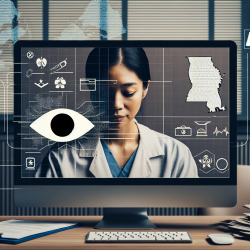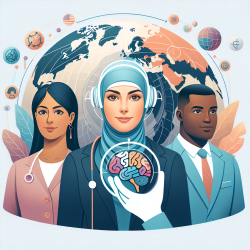As practitioners in the field of speech-language pathology, we are constantly seeking ways to improve our skills and outcomes for the children we serve. A recent study titled "Model Collaboration: University Library System and Rehabilitation Research Team to Advance Telepractice Knowledge" offers invaluable insights that can help us achieve these goals. This research, published in the International Journal of Telerehabilitation, highlights the power of interdisciplinary collaboration and open access to knowledge. By implementing the outcomes of this research, we can enhance our telepractice skills and provide better services to our clients.
The study describes a collaboration between the University Library System at the University of Pittsburgh and the Rehabilitation Engineering Research Center (RERC) on Telerehabilitation. This partnership has led to the creation of the International Journal of Telerehabilitation (IJT), a peer-reviewed, open-access journal dedicated to disseminating information about telerehabilitation. The IJT publishes original research, case studies, technical reviews, and policy papers, all of which are freely accessible to practitioners worldwide.
Here are some key takeaways from the research that can help you improve your telepractice skills:
- Interdisciplinary Collaboration: The study emphasizes the importance of working with professionals from various fields, including librarians, information technologists, publishing professionals, clinicians, policy experts, and engineers. By collaborating with experts from different disciplines, we can gain new perspectives and access a broader range of resources and knowledge.
- Open Access to Knowledge: The IJT provides free access to high-quality, peer-reviewed research. This open-access model removes barriers to information and allows practitioners to stay up-to-date with the latest advancements in telepractice. Make it a habit to regularly review articles from the IJT to stay informed about new techniques and best practices.
- Use of Technology: The study highlights the use of the Open Journal Systems (OJS) software, which facilitates the flow of scholarly content from initial author submissions through online publication and indexing. This technology ensures that research is easily accessible and discoverable. Consider using similar platforms and tools to streamline your own practice and improve access to resources.
- Data-Driven Decisions: The research provides detailed readership statistics, demonstrating the global reach and impact of the IJT. By analyzing data on user domains, visitor hits, and total page views, we can identify trends and areas for improvement in our own practice. Use data analytics to monitor your telepractice sessions and make informed decisions to enhance outcomes.
In addition to these takeaways, the study also underscores the importance of continuous learning and professional development. By staying engaged with current research and participating in collaborative projects, we can continually refine our skills and provide the best possible care to our clients.
To read the original research paper, please follow this link: Model Collaboration: University Library System and Rehabilitation Research Team to Advance Telepractice Knowledge.
At TinyEYE, we are committed to leveraging data-driven decisions and evidence-based practices to create great outcomes for children. By implementing the insights from this research, we can enhance our telepractice skills and continue to make a positive impact on the lives of the children we serve.










